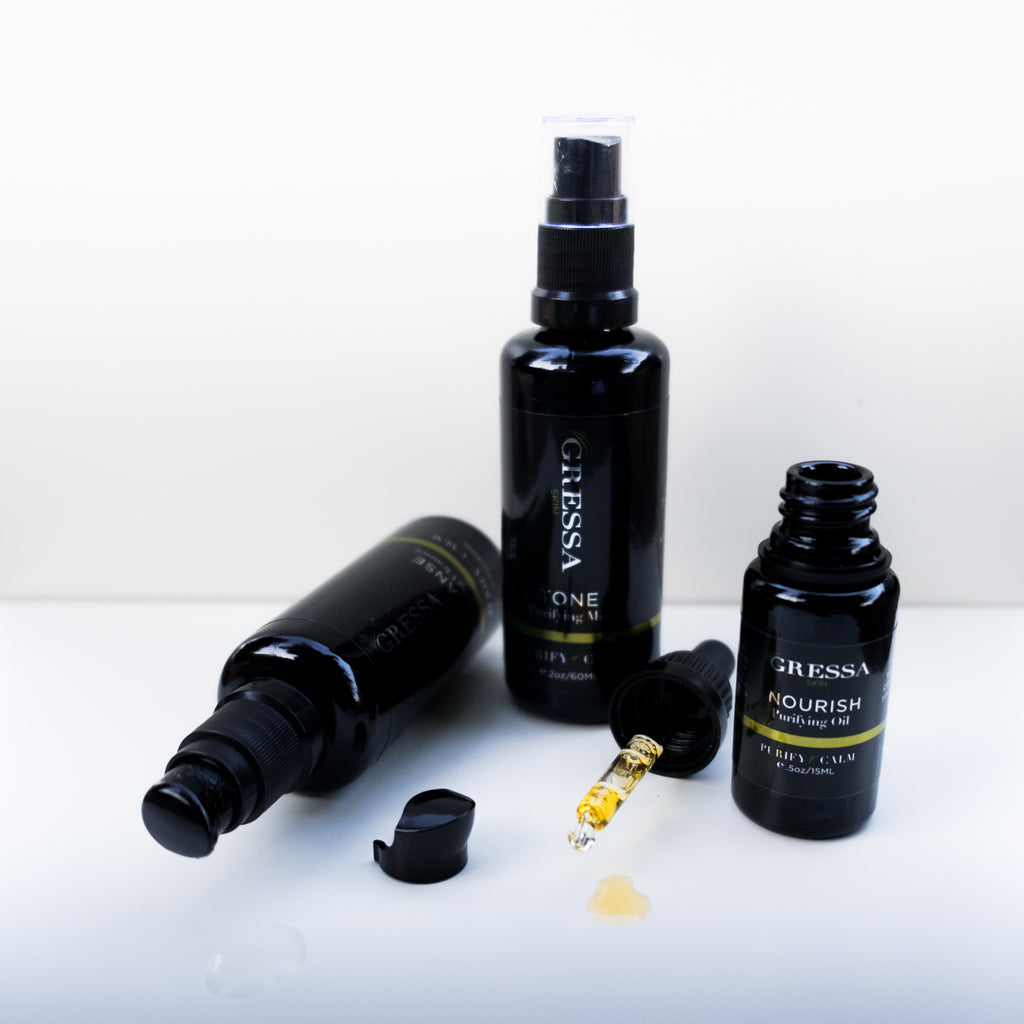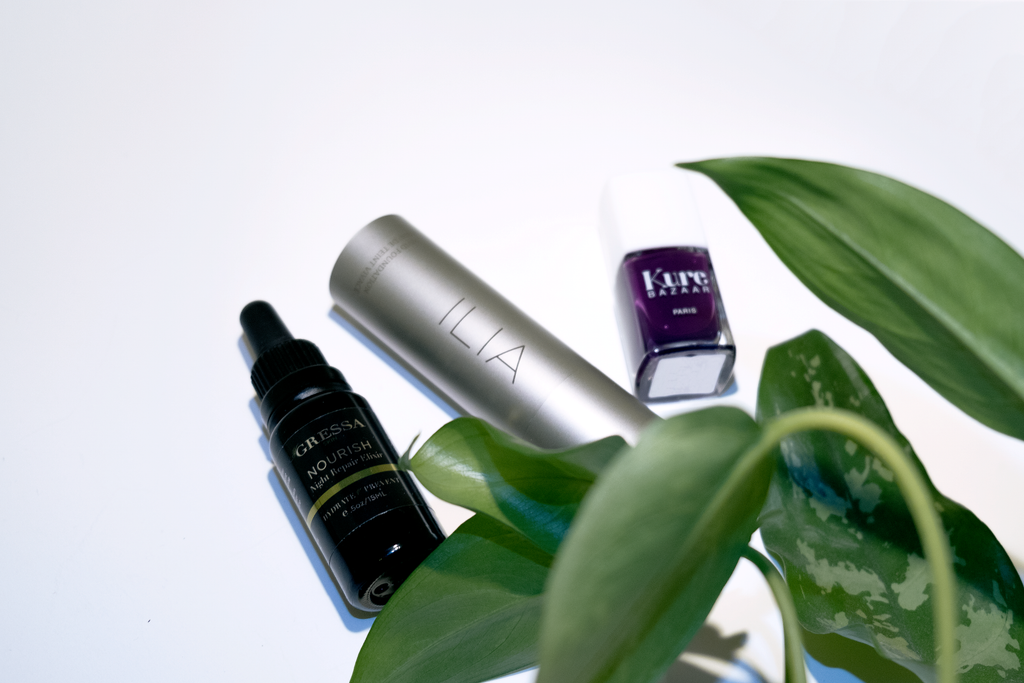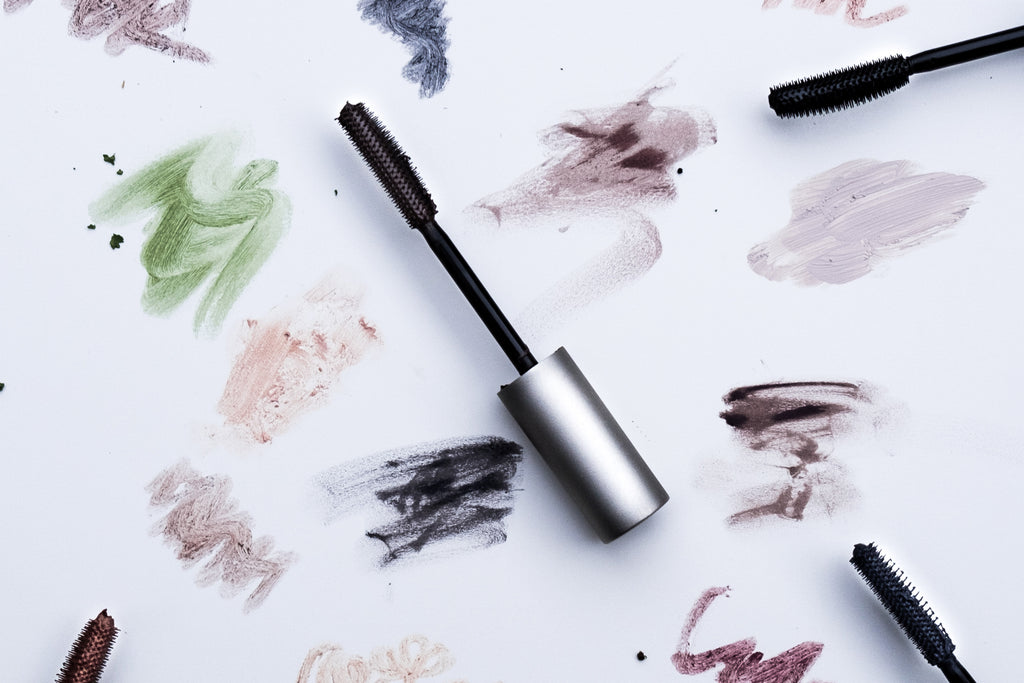I started transitioning towards natural beauty several years ago, after I got curious about the "without parabens" sign on my shampoo bottle. I was overwhelmed by all the information I was taking in at once. Transitioning to healthier skincare and color cosmetics is not the easiest thing in the world, as they're sadly still less accessible. And don't get me started on all the greenwashing in advertisements these days! It took me a while (years even), to find cosmetics that perform well, make my skin glow and are truly good for you. With Florissana I wish to make the brands that I believe in more accessible for everyone by grouping them in one place.
But let's get back to why I chose natural beauty in the first place. I've writen down 5 of the main reasons.

1. Your skin's health
Natural products contain much less fillers and weird ingredients. You can actually sort of understand the label. Most people notice that their skin reacts very well to the use of simple, good-quality, natural skincare and cosmetics.
One of the many reasons is that there's no synthetic fragrance. Alarm bells should go off in your head when you read the word "fragrance" on your ingredients list without a decent explanation of the manufacturer about what that actually means. What exactly goes into the "fragrance"-ingredient is considered a trade secret, and doesn't need to be disclosed to the consumer. Research has found that added fragrances are among the most common causes of sensitizing and other negative skin reactions. And sadly it's in almost all conventional beauty products.
Of course, it's still possible that your skin won't get along with certain ingredients in natural products as well. My skin doesn't always react very well to coconut oil, while it works miracles for my best friend's face. It can take some trial and error to find products that completely fit you and your skin, but the same thing goes for conventional beauty products. In the end, your skin will thank you for taking the time to look after it so well!
2. Ingredients can reach your bloodstream (and the ocean)
Sodium lauryl sulfate, methylisothiazolinone, mineral oil, petrolatum, parabens, propylene glycol, formaldehyde, DEA and phthalates are some of the ingredients that are often used in conventional products. This is not a good thing, as there are possible health risks associated with all of them. Your skin consists out of a lot of layers, is semipermeable and has hair shafts. This means that a small percentage of the ingredients you put into the skin eventually reaches your bloodstream.
A good example of this are chemical vs. mineral sunscreens. Mineral (or physical) sunscreens sit on top of your skin and reflect UV rays. Chemical sunscreens work by absorbing UV rays, converting them into heat, and then releasing. These kinds of sunscreens often include penetration enhancers. Many sunscreen chemicals are thus absorbed and can be found in the blood, urine and even human breast milk. On top of that, chemical sunscreen can be disastrous for the environment and easily damage coral reef systems. So when you go swimming, please make sure to use a coral reef-safe sunscreen!
We already live in a polluted world, why not avoid using even more synthetic chemicals when there are alternatives?

3. Ingredients like mineral oils and silicones do very little for your skin or the environment
Mineral oil is made from petroleum, it's sometimes used as one of the main ingredients in skincare products. It's often contaminated by toxins, and while there's no conclusive evidence that it will certainly harm you, there's also no evidence proving it's completely safe. On top of that it's comedogenic, which means it closes off your pores. This increases your risk of getting spots and blackheads. And even if all of the above was not an issue, it does nothing good for your skin.
Not all silicones are created equal, and there are a lot of different types. Big quantities of silicones should be avoided as they can be comedogenic as well and it should definitely not be the first ingredient in any of your skincare products. The problem here lies mostly with the environment. They can build up over time as they are bioaccumulative.
Of course there are many other ingredients that you should be avoiding for (skin) health and/or environmental reasons. As mentioned above, ingredients like sodium lauryl sulfate, methylisothiazolinone, petrolatum, parabens, propylene glycol, formaldehyde, DEA and phthalates are no good! Usually these ingredients are just used because they're cheap, prolong the shelf life of the products and/or badly mimic the effect of natural ingredients.
4. Support fair and eco-friendly labour practices
Botanical beauty products can indeed be more expensive. This has several reasons. Truly natural ingredients are more expensive to acquire for the company. They're usually handmade in a factory that promotes fair labour and eco-friendly practices. You cannot sell a product for two euros without someone, somewhere paying the price for it. Usually the worker that made your product or Earth. With your money you have the ability to support others fairly for the products that you're buying. This is, of course, also true for other types of products, e.g. clothing.
That doesn't mean that all expensive products necessarily promote ethical production. You can find products by 'high-end' brands that are made in bulk, and made with synthetic ingredients and lots of preservatives. Reading the labels and doing your research is key! These brands are often owned by a parent company that re-uses similar formulation with some minor tweaks for several of their child companies. The goal is to make huge profits off of products that don't do much for your skin. The only "benefit" of these synthetic ingredients is that they can be manufactured at a low cost at any time of the year, regardless of which plant is in season at the time.

5. No animal testing
These days companies still do way too much testing on animals. Sometimes a brand can claim to be cruelty-free, even though their parent company still tests on animals (like L'Oréal and all the child companies like Urban Decay and NYX). This often starts a debate about whether or not you should support similar brands. I personally try to support smaller, ethical brands were possible that - explicitly - care about the animals, environment and the humans manufacturing the product.
There's no need in this day and age to still test on animals while there are so many alternatives. Thankfully, most natural brands are cruelty-free and usually also have some sort of certification like Leaping Bunny Cruelty-Free. They usually make it a lot more clear if they're animal-friendly (or even completely vegan), instead of confusing the consumer with a long, vague guideline about their animal testing policy.
Of course, if you choose Florissana, you don't have to worry about any of these things. We will do the worrying for you. We assure you that all the brands we will ever promote are ones that don't violate any of our principles.
Love
Jana
Main sources:
The Environmental Working Group
No More Dirty Looks, Siobhan O'Connor & Alexandra Spunt
The Nature Of Beauty, Imelda Burke
Dit Is Een Goede Gids, Marieke Eyskoot

